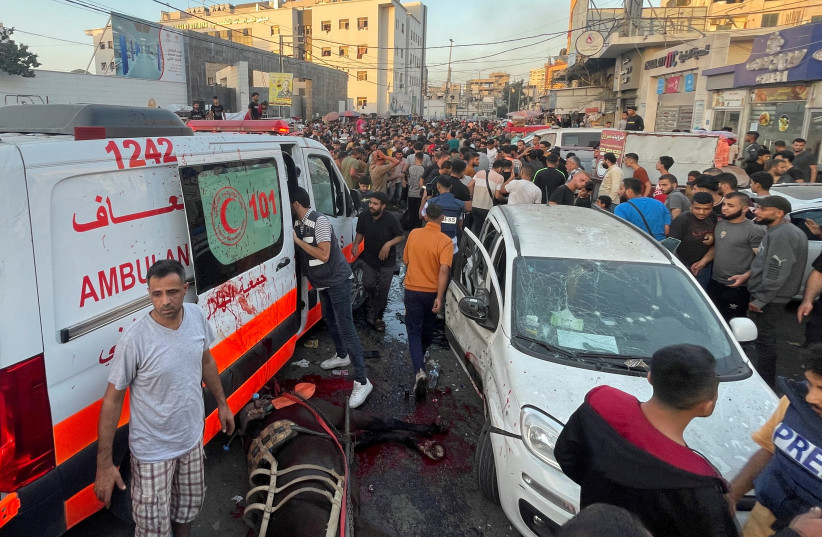IDF lawyer to ‘Post’: We comply with int’l law because of duty to democracy
This is Part 2 of The Jerusalem Post’s interview with a senior IDF military lawyer. To read Part 1, please click here.
Back in October, airstrikes in Gaza were particularly dense in Jabalya in the northern Gaza Strip. A senior IDF military lawyer has told The Jerusalem Post that some of the incidents are among those that the operational military preliminary probes have started to look into to examine the military’s adherence to the laws of war.
Some of the Jabalya incidents are among those that IDF operational preliminary probes have started to look into. Between 69 to 125 Palestinians were allegedly killed during these incidents.
The purpose of one of the operations was to kill a senior Hamas official, and it appears that the IDF had factored in a small number of civilian casualties from the one location he was inhabiting.
However, the house that was struck led to collapsing the tunnel below it, which in turn collapsed a range of nearby structures.

In such cases, the IDF official said he and his field team would need to examine questions of proportionality based on what it could have reasonably been expected to know before the operation, not what the result turned out to be using the information it did not yet know.
From a military advantage perspective, since the goal is to take control of Gaza from Hamas, the value of eliminating Hamas tunnels is far higher than before and is also important for ongoing force protection as the troops maneuver the ongoing invasion.
IDF learns lessons of past failures
The expected harm to civilians is notoriously hard to guess, but he admitted that the IDF learned lessons from a conflict disaster back in May 2021, in which large numbers of civilians were killed by accident due to the unexpected collapse of a tunnel under a residence, which caused the whole block of residences to collapse.
Even with that, the height, length, and width of the tunnel may be different than what intelligence estimates, he explained. The solidity or rickety-ness of the materials from which the tunnel is made may also be different than IDF estimates.
The official noted as well that if Hamas hides explosives around a tunnel to try to trap and kill troops – which causes explosions and more residences nearby to collapse – the IDF cannot be held accountable for that.
Another special category of cases in this war is hospitals. Although medical centers have special protections under the laws of war, their status can change – again due to the question of proportionality.The scenario plays out as follows: What if the IDF only takes over a facility but does not fire at it? The official was skeptical as to whether, in such a case, there could be a basis to even begin a criminal inquiry.
In other words, the very fact that the IDF chose not to attack Shifa actively would negate any case of criminality for indirectly caused deaths from the general negative impact on the hospital’s functionality caused by having been surrounded.
At the level of disrupting its functionality, Hamas would be blamed for using it as a military command center and weapons depot, and the IDF would be justified in taking it over, especially if it did not actively fire on the facility or anyone within it.
One area where the IDF has not given much of a legal rationale for its actions was the early days of the war when it blocked Gaza’s access to water.
Blocking access to fuel could have a basis to directly weaken Hamas’s war-making efforts, but blocking access to water would potentially be a grave violation of humanitarian obligations to Gazan civilians.The official said, “You need to remember that only 10% of Gaza’s water supply comes from Israel.” He added that in terms of the pipes for delivering water, when Hamas’s rockets damaged the pipes, Israel worked to fix them quickly, which provided significant water to Gazan civilians.
The official concluded, “We comply with international law because of our commitment to democracy.”





Comments are closed.